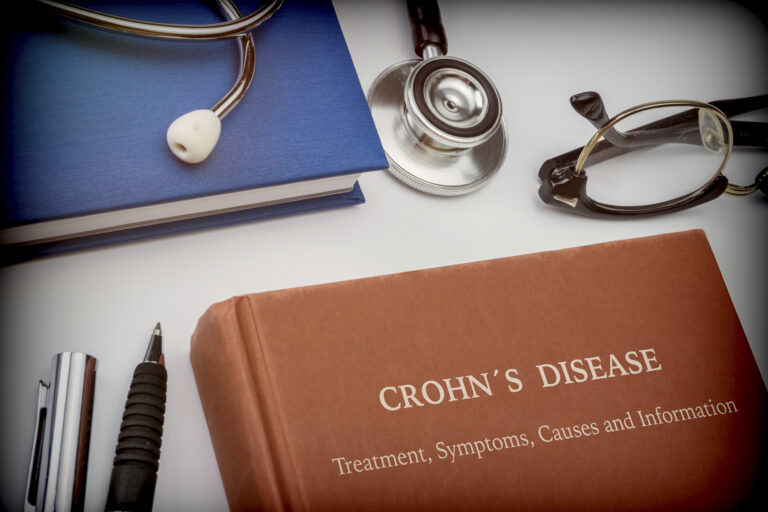Crohn’s disease is an inflammatory bowel disease (IBD) that can affect the entire gastrointestinal or GI tract, but most commonly the small intestine. Crohn’s may be confused with IBS and celiac disease but is most similar to ulcerative colitis. Symptoms of Crohn’s include abdominal pain, frequent bowel movements, watery or occasionally bloody diarrhea, and abdominal bloat. Related symptoms may include anemia, fatigue, skin rashes, weight loss and arthritis. Diagnosis is largely through colonoscopy and biopsy.
While there is a strong genetic component associated with Crohn’s, the disease is much more common in the developed world, which indicates a significant environmental component. The advent of antibiotic use from the 1920s began the disruption of gut microflora, an imbalance passed commonly from mother to child. In addition, studies show “cold chain” pathogenic bacteria like Yersinia and Listeria may be promoted through the use of refrigeration.
Many studies link Crohn’s to a preponderance of pathogenic bacteria, such as E Coli, or aggressive types of fungus like Candida. Indeed, Crohn’s commonly develops after a bout of food poisoning in susceptible individuals. Tobacco smokers are twice as likely to develop Crohn’s. The disease tends to start in teens or younger adults, and these individuals are at risk for malnutrition and growth failure, due to decreased food intake and malabsorption. Symptoms are often experienced in episodic flare ups, followed by periods of remission. This indicates that triggers may be present and should be identified if possible.
Can Crohn’s be brought completely under control? Absolutely. Symptoms of Crohn’s are very similar to a condition called Small Intestine Bacterial Overgrowth, or SIBO. Giant strides within the world of complementary medicine have been made in the treatment of SIBO. This includes the use of breath tests to determine which type of bacteria are present, gentle antibiotics that do not disturb gut flora as readily, or herbal antibiotics. Prokinetics can restore peristalsis or intestinal muscle movement, and the careful use of certain probiotics at the right juncture of care are important.
Diet can be critical in the management of Crohn’s. Keeping a diet log and eliminating dairy and gluten can be helpful. Other foods that contain high levels of gut irritants such as lectins, oxalates or phytates, should also be minimized. Use of an elemental diet, proper hydration, and cessation of smoking may be critical to recovery. Certain lab markers can be used to track levels of inflammation, and vitamin D levels should be monitored, as there is an association with low vitamin D and Crohn’s disease.
Finally, acupuncture is used to treat all types of IBD widely in China and increasingly here in the United States. Multiple studies have shown the benefits of regular acupuncture in significant overall reduction of Crohn’s symptoms, including a marked anti-inflammatory effect, and maintenance of the remission phase. Here at Vital Health, we dig deep in order to uncover the root causes of your health condition, so that you can fully recover and live the quality of life that you deserve.
©2021 Darcy Greenwald, M.S.O.M., L.Ac. and Vital Health







